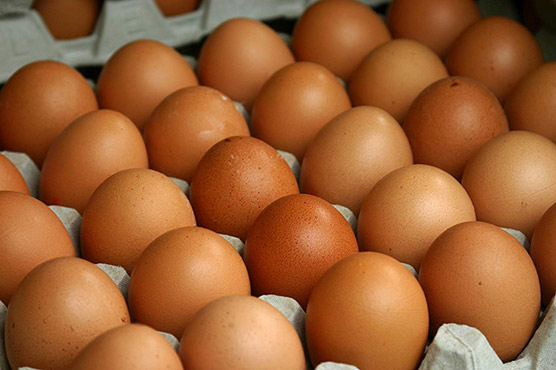Chickens 'modified' by researchers to lay eggs containing anti-cancer proteins

Drugs containing both proteins are frequently prescribed by doctors for the treatment of cancer.
Web Desk - Researchers from the University of Edinburgh have recently intertwined a human gene into the DNA of a group of “pampered” chickens in the UK.
Thereby, the hens have been laying eggs which contain significant amounts of two proteins, in particular, which could be used to treat diseases including cancer in humans - and the process, according to the researchers, is far cheaper than the current methods of protein production.
"Production from chickens can cost anywhere from 10 to 100 times less than the factories," researcher Lissa Herron told the BBC.
"So hopefully, we ll be looking towards at least 10 times lower the overall cost of manufacturing," she said.
The human body naturally produces the proteins found in the new hen eggs including IFNalpha2a and macrophage-CSF, and both of them play a critical role in the immune system.
Furthermore, drugs containing both proteins are frequently prescribed to patients by doctors for the treatment of cancers and other diseases; however, production of such proteins in laboratories is complex and expensive.
According to a journal published in the BMC Biotechnology, the Edinburgh researchers spliced the gene that produces the proteins in humans into the part of the chickens DNA that handles the production of the white in its eggs.
Later, they found that just three eggs contained a dose-worth of the required proteins.
Besides, Herron said that the genetic modification does not affect health of the chickens in any way, and as far as they know, they are just laying normal eggs.
The research has yielded good results, but the team believes that it would take about 10 to 20 years before regulatory agencies would approve any drugs for human use from their genetically modified chickens.
However, the proteins in the hens’ eggs could serve the purpose till then.
"We are not yet producing medicines for people," researcher Helen Sang told the BBC, adding the study showed that chickens were commercially viable for producing proteins suitable for drug discovery studies and other applications in biotechnology.

